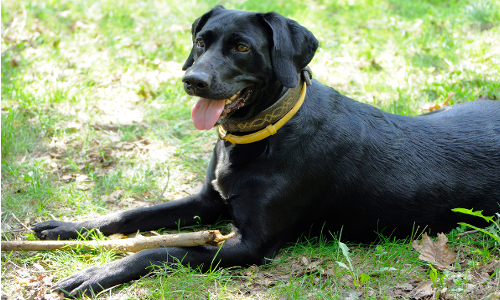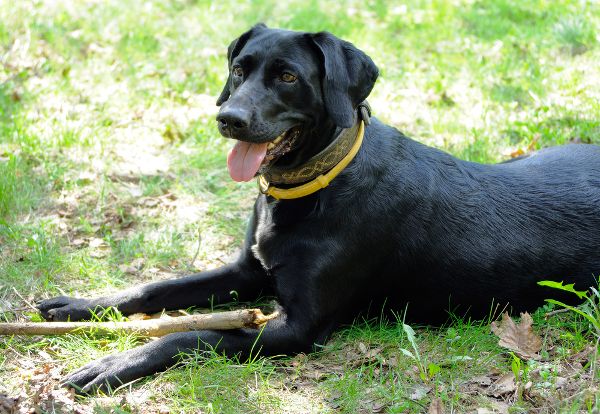

You have a dog? Then you’ve undoubtedly had experience with flea collars, flea medicines, anti-flea shampoos and de-fleaing bombs for your home. Pet store shelves are loaded with powerful products that promise to vanquish those creepy creatures and prevent future infestations. But if you’re concerned about potential health impacts on both you and your pet from the chemicals often used to deter the fleas, there are lots of natural remedies you can use to get at the root of the problem.
1. Keep that dog clean! No special flea shampoo is necessary if you bath your dog regularly (at least every 2-3 of days) using a mild dish soap or organic pet shampoo. Add a few drops of freshly squeezed lemon juice to his bathwater; fleas don’t like lemon. Start at the top of his head and work down so fleas don’t jump upwards to escape but fall into the water instead.
2. Keep your house clean too. Cleaning pet bedding regularly seems obvious, and it’s one of the most effective non-chemical flea control steps you can take. More frequent and diligent vacuuming is worth the extra work too; this can work as well as any flea-killing solution.
3. Herbs of all kinds are loaded with bug repellent properties. Mint is especially well-known for its ability to tackle bug infestations, but lavender, tansy, rosemary and lemongrass are effective as well. Make a natural non-toxic flea collar by dabbing a bit of essential oil on your pet’s collar or bandana. You can also make an herbal spray solution for his coat mixing a few drops of essential oil with water and dish soap. Spritz him lightly several times a day.
4. Herbs can also help to keep your house flea-free. Make a mixture of cedar chips, dried mint, lavender buds or whatever other bug-repelling herbs appeal to your nose. Put it in small muslin bags and place them near your dog’s bed or wherever else he hangs out. You can also place live herb plants around your house and get the same benefits in addition to having a restorative indoor garden that makes your whole house smell fresh.
5. If you’re an organic gardener, you may have used diatomaceous earth in your garden to control pests like flea beetles. It’s not a chemical but a dust containing sharp silica particles, the remains of microscopic organisms. Their edges damage the exoskeletons of insects, causing them to dry out and die within 48 hours, but they are harmless to animals and humans. Dusting your dog with it won’t hurt him and it’s got the added benefit of being effective against other insects you don’t want in your house such as cockroaches and bedbugs. It can be safely sprinkled on pet beds and in corner of your house where fleas lurk and vacuumed up a couple of days later once it’s done its work.
6. Make your own flea traps. Fleas are attracted to light. Put a lamp over a bowl of water, and fleas will fall in the water as they’re drawn to the lamp. Add some dishwashing soap to thicken the water to trap them. Any light source will do as long as it attracts fleas to water; this is most effective at night when it’s the only light source they can find.
7. Apple cider vinegar has been touted as a health-giving elixir for people. It’s also good for your dog, fighting fleas and improving the condition of his coat. Add a teaspoon to each quart of his drinking water to give him this beneficial boost without toxic side effects.
YOU MIGHT ALSO LIKE
10 Natural Ways to Keep Insects Out of Your Home
EPA Sued Over Toxic Pesticides in Pet Flea Collars
8 Toxic Products You Should Not Bring in Your Home + Natural Alternatives

 233k
233k  41k
41k  Subscribe
Subscribe 
